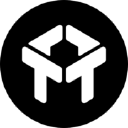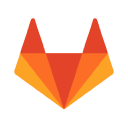
On Building A Crypto Portfolio Tracker App
Hi, I am Alex one of the 5 co-founders of Accointing.com, we are a portfolio tracking and tax tool for cryptocurrencies based out of Switzerland. Yes, I'm talking about cryptocurrencies, that thing that was hyped in 2017 still today exists and actually is flourishing more than ever.
The journey of crypto for myself started in 2016 when Yann one of the other co-founders introduced me to this thing called Bitcoin. I was always a gadget kid, I loved new and exciting technology and to this day I remember when I got the first Google Nexus smartphone.
Anyway, back to cryptocurrencies, I got obsessed for about 2 months I wouldn't leave my house as I consumed absolutely every video, article documentary I could find about what money is, what decentralization is, game theory, and what the economics behind money is. I got so obsessed that I knew I wanted to work in this exciting space. After trading for months, all my friends were experiencing a common issue: dealing with crypto taxes. We saw the potential and got to work.
Accointing is a cryptocurrency portfolio tracking and tax tool, that is available on mobile and on a web platform. The idea is that you can easily integrate all of your cryptocurrency wallets & exchanges, all in one place, and see how your cryptocurrencies are performing. By doing this, you can make better investment decisions. Besides this, you can also easily print out a tax report with 1 click.

What's your backstory and how did you come up with the idea?
In 2017 the whole cryptocurrency market went absolutely crazy and at the time the only solution I had to track all of my trades and transactions was excel. This was obviously a huge pain in the backside, and when the market just went crazy I could barely keep my excel up to date because I was trading so much.
Be consistent and be cohesive.
Meanwhile, a friend and co-founder Dennis who at the time was living in Germany was struggling with doing his taxes, the only tool that was around wasn't helpful as it was giving wrong outputs which resulted in gains being far too large. This resulted in Dennis going to an Accountant, where he spent way too much money and besides this also time to educate the accountant on cryptocurrencies.

At this stage, Yann said we can do all of this better. So that's how the journey of Accointing started.
Take us through the process of designing, prototyping, and manufacturing your first product.
The first product was a lot of trial and error, especially with software products its hard to understand what works for a great UX and what just looks good. You have to think about the issue with the user's perspective, he doesn't know your product, he often doesn't know the problems that come up and if the user does not understand your steps, as a product owner, did a bad job. Create some first ideas in a sketch, write them all on a whiteboard make a photo and sleep one night to really think about it. Go deeper into the design and create the first really designed version. Walk someone else through the steps and remember the different things you had to explain this person in detail, that's all the things that are currently not clear. Improve these issues and create a more precise design, finish the details up to 80%.
Go a step back and think about it again. Think about the overall fit of this feature into your product and the rest of your designs. Always try to take the same elements over and over again. One function like the next button should always be the same. Think about all the edge cases that could happen with the new feature and try to handle most of it in descriptions or more steps. Take another person and another developer and walk through your ideas and the way you would build that from a technical perspective. If they have some more questions try to handle these in the design and create the final design.
Describe the process of launching the business.
Since this was a product that we were building for our own needs we decided to self fund it as we knew exactly how we wanted our product and didn't want outside investors to have a say in how we should do certain things. We knew we had enough funds to sustain ourselves for at least 1 year.
We launched the test version of Accointing in November of 2018, it was a slow rollout which we announced through various cryptocurrency Reddit channels and shared it with friends and cryptocurrency groups that we were a part of. Our platform wasn't fully complete but we wanted to get to the market as quickly as possible to receive as much feedback as possible. What is relatively unique to the cryptocurrency space is that most people are early adopters, they don't mind finding problems and helping teams out to solve them. So this is what we focused on.
Our full launch happened in June 2019 where we started to really push the product out, which was pretty much totally done through twitter (twitter has a huge cryptocurrency community). We worked with several crypto twitter influencers, reached out to various news sites. The first 1000 customers were the hardest to get but since then we have been successful mainly with Twitter. Since launch now having multiple thousands of users.
Since launch, what has worked to attract and retain customers?
As I have previously mentioned the cryptocurrency industry right now is tiny, and due to this, the community that is involved is in very small circles. Our target users concentrate on Twitter and tech-focused blog spaces and news sites(Hackernoon, The Block, Cointelegraph, etc) and Podcasts (What Bitcoin Did, Venture Coinist, and others). What has worked thus far is understanding who is who in crypto and being consistent.
As you might understand, our product focuses on a fairly complex subject (both technically and emotionally...no one wants to pay more taxes) but choosing the right channels has been an empirical approach that has generated great learnings. What we can say is that Twitter has been a great outlet to generate web visits and generate conversions. We have struggled with Google Ads, YouTube, and Facebook throughout the entire year. We finally manage to advertise through Google and YouTube for the last couple of months. However, the CPC is very high for short-tail keywords. We had an issue regarding the landing page (a bad design that looked like a scam. Lesson here: take care of your brand like if you were McDonald's) we were redirecting and that had huge repercussions because the bounce rate was between 80-90%. However, due to the issues with Google, the transition took some time until we could finally start redirecting ads to our own website. Manage to decrease the bounce rate to 27%. Facebook is another sad story. We tried to advertise with them since January this year. We got rejected several times. When Libra got released, the next day we got approved to start advertising. However, we saw that the CPC was higher than with Twitter and the CTR wasn't that great either so stopped for a while. A big part of our Audience is German and we realized that they are not on Twitter due to the fact that words in German are very long hence they mostly connect through Facebook. Hence, we decided to advertise with Facebook again. However, now we are having issues advertising with them (even though we had advertised with them before). Who knows why-might be the current situation with their association or whatnot. We are working on it though.
In terms of the partnership, we are working in Germany with this great news site. Crypto taxes are a complex subject and due to our founder's knowledgeability about the whole thing, we have been more than happy to share it with them in order to create some awareness and guidance in terms of reporting your taxes. For the US, we have been working with 2 news outlets that have let us be part of their content generation sponsors. We’ve also done affiliate marketing through other news sites. This hasn’t worked out great. In terms of PR, we haven’t done much, to be honest. We have worked with several influencers. Some of them generated amazing results, some of them were not good for business and some of them just lacked professionalism. Make sure that you schedule weekly meetings with them to go over content/new features/trends etc. We also worked with a podcast. This was a good medium to generate awareness of the product. However, with podcasts, it’s hard to adjourn conversions to them so you really don’t know the ROI of your campaign. We did it for 3 months. We take competitors pretty seriously.
At the beginning of the year, we did a thorough feature analysis for both crypto tax tools and crypto portfolio tracking tools. We compared the different features that we expected to have in Accointing and the usefulness in each platform from a trader’s perspective. Then, we put it all in a spiderweb graph to understand where our biggest opportunity was to tackle those opportunities first. We realized that a lot of tools were overpriced, lacked customer support and that UX was a perk that had huge potential for improvement across all tools. We leveraged on that to keep bringing customers. We showcase how easy it is for our users to use Accointing and we leverage on our design to portray that through our mailing campaigns. We also started offering Telegram market updates on a daily basis while the alerts feature wasn’t available. We offer relevant information through push notifications and due to the fact that we are constantly adding features, we keep our users interested in the platform. We can’t say we are perfect, but most of our users are very keen on making Accointing work, constantly providing feedback that we appreciate and pushes us forward to keep improving.
How are you doing today and what does the future look like?
We are currently focusing on acquiring users. We want as many people as possible to give us their opinion of the tool, test it out and give us relevant feedback that analytics can’t provide. We are very data-driven and that has been the ethos of the company from the onset. We make decisions based on numerical information. That’s how we optimize our website, that’s how we improve the platform and app, etc. Our margins are on the negative side as we have been purely investing in the platform. Our ad spend is linked to seasonality due to the fact that our profitability is based on the tax reports. Everything else is for free: dashboard and app.
You always have people selling all their crypto and people coming into the space buying crypto that afterward, they will need to report their crypto taxes. The average time on site is between 1:38 minutes to 2:45 minutes. The variation is due to seasonality and the number of pages they visit also increases. Our conversion rate is around 3-5% for signups. We will be expanding to new markets in the upcoming year. Tax reports for UK are currently available.
Regulations are a huge compass for us to prioritize new features. As regulations are more concrete for crypto, it helps us to understand the future needs of our users. Our goal for next year is to become an all in one solution. We are building and concretizing huge feature updates for the future of Accointing next year. We are currently in negotiations to partner with a great tax firm with a global presence that should give us that boost to mainstream media and world-wide awareness in terms of taxation. For the other features, we are working on Accointing 3.0: an amazing platform that we can’t wait to show you this year.
Through starting the business, have you learned anything particularly helpful or advantageous?
“Don’t count your chickens before you have the eggs”. I learned that back during my travels in Guatemala with the team. We had the idea of offering a tax optimizer for Specific ID. That was going to be one of our biggest selling points, our MVP. However, we quickly realized that we had too many bottlenecks for that feature and we relied on third parties to execute it. Hence, we decided to focus on the 4 pieces that we saw had a lot of opportunity in the space:
- Fair pricing: offer a tool for everyone who is concerned with their taxes and have no idea on how to do them at the most reasonable price in the market.
- Amazing UI/UX: in the crypto space, the design is not something that people are focusing on. We decided to change that.
- Incredible customer support: crypto can be frustrating and taxes...well...even more. We tried to empathize with the user and we focus a great part of our energy on this.
- All in one solution: we got tired of so many tools to be able to get clear outputs. We consolidated everything into one platform to track and manage your crypto portfolio as well as optimize and report your crypto taxes.
We started off focusing on the taxation part of our platform. We quickly realized that people need to be able to track their portfolio first in order for them to clearly understand their taxes. We started offering taxation meetups in Germany and online webinars for the US. Meanwhile, the dev team focused on creating a slick app for our existing and new users. We made an entire revamp to our existing app and relaunch it. The market was doing ok so it was great timing to launch the app. For tax purposes, we didn’t manage to get to the American users around April. Next year we will definitely be there. Some helpful things that we have done have been:
- Over Communicate - say it, spread it, and don’t keep it: make sure that your team is aware of everything. One of the key advantages of working in a startup is that your team is pretty slim. If you will be expanding at some point, you need to make sure that people set the foundations of relationships right now. Especially, establish ways of working clearly, analytically and directly.
- Reiterate designs and gather feedback: try to get the landing page on point and make sure that you have a consistent message across both in tone, wording, and design. Include as many people as possible to give you positive feedback.
- Do not hire consultants-DIY: if you will hire, hire helping hands. Consultants are pricey, you have 0 control and they won’t deliver or align to your ethos. Remember that they work for a Third Party and the Third Party usually charges per hour.
Habits that you should follow
3 Ms:
- Meetings: if the meeting doesn’t have an agenda, do not attend
- Minutes: if you attend a meeting, there has to be someone in charge of generating a minute, in the end, to be shared with the team
- Metrics: opinions are important but they need to be backed by data. Metric-based opinions tend to have way more leverage and results in reaching an agreement/next step.
4DX:
- Focus: find your Pareto and establish a plan to fix that main driver for your business.
- Leverage: understand the key buttons and levers you need to move and push to fix improve your business driver.
- Engagement: make it fun. Compete and put a price for the best performers. Bragging rights always bring some laughs.
- Accountability: define stakeholders and leaders and remind them of the importance of their tasks.
What platform/tools do you use for your business?
We use several tools:
For project management:
For communication/support:
For metrics:
For design:
What have been the most influential books, podcasts, or other resources?
Books:
- The Power of Habit-Charles Duhigg
- Grit-Angela Duckworth
- The 4 Disciplines of Execution-Franklin Covey
Podcasts:
- What Bitcoin Did
- Into the brink
- Joe Rogan
Resources:
- The Block
- Cointelegraph
- Bloomberg Tax
- Forbes Crypto
Crypto Twitter: @TheCryptoDog @CryptoBull @CredibleCrypto
Advice for other entrepreneurs who want to get started or are just starting out?
Starting your own company will be hard. Some tips that I could give to you are:
The 3CS: Cooperation, Cognition, and Cohesiveness.
Make sure that you are always doing something. You always have something to do in a Startup.
Being cognizant means that you never ever stop learning. Try to do something that you haven’t done before: if you’re in marketing, learn some code. If you’re a developer, write an article. If you’re the CEO, create a tweet.
Be consistent and be cohesive. Whatever you say to make sure it’s aligned to your tone and look and feel. Define clearly who you are as a company. Create a persona of the company and be consistent with your messaging and design.
Are you looking to hire for certain positions right now?
Senior Front End Developer - Full-time - Paid
Native App Developer - Full-time - Paid
Where can we go to learn more?
You can reach out to us at:
Social:
- Facebook (here you can still see some traces of the bad decisions we made)
- Medium
- YouTube
Support:
If you have any questions or comments, drop a comment below!

Download the report and join our email newsletter packed with business ideas and money-making opportunities, backed by real-life case studies.

Download the report and join our email newsletter packed with business ideas and money-making opportunities, backed by real-life case studies.

Download the report and join our email newsletter packed with business ideas and money-making opportunities, backed by real-life case studies.

Download the report and join our email newsletter packed with business ideas and money-making opportunities, backed by real-life case studies.

Download the report and join our email newsletter packed with business ideas and money-making opportunities, backed by real-life case studies.

Download the report and join our email newsletter packed with business ideas and money-making opportunities, backed by real-life case studies.

Download the report and join our email newsletter packed with business ideas and money-making opportunities, backed by real-life case studies.

Download the report and join our email newsletter packed with business ideas and money-making opportunities, backed by real-life case studies.

















